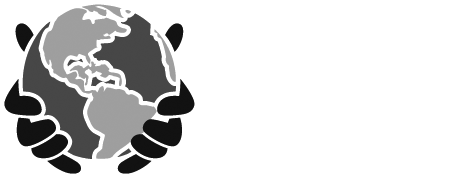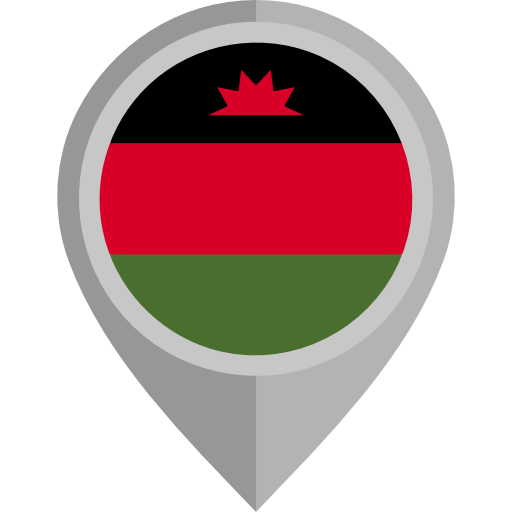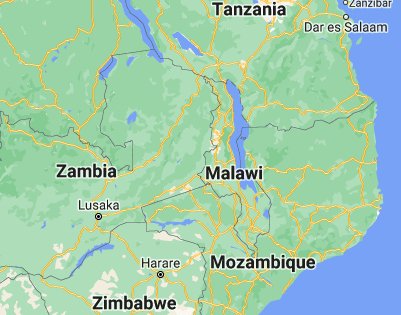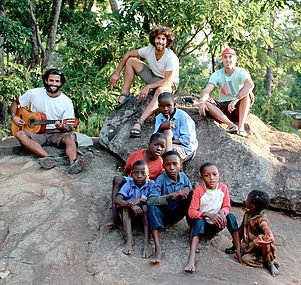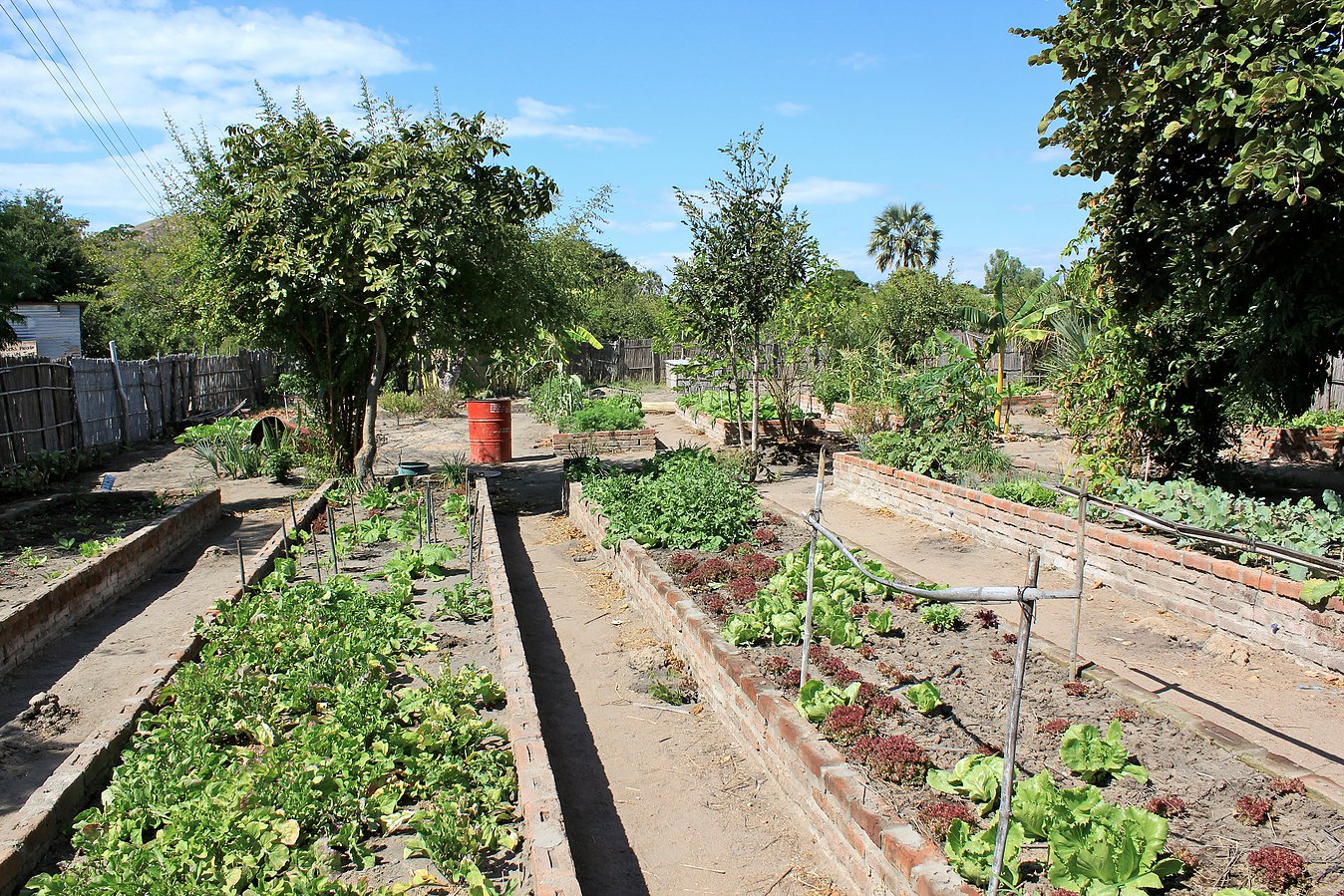LIFE IN MALAWI
Malawi is one of the poorest countries in Africa; but surprisingly enough, one of the warmest. It has been nicknamed: 'The Warm Heart of Africa' and it doesn't take long once you arrive here to feel the warmth and friendliness of the locals. Lake Malawi runs throughout most of the country and is the lifeline for so many. It's been named the calendar lake since it is 52 km wide and 365 km long.
Located in Southeast Africa, Malawi is a vibrant country known for its warm-hearted people and stunning natural beauty. Bordered by Tanzania, Mozambique, and Zambia, this landlocked nation is home to the shimmering Lake Malawi, which dominates its eastern border. With its diverse landscapes, from lush mountains to sprawling national parks, Malawi offers an abundance of opportunities for wildlife enthusiasts and outdoor adventurers. The unique culture of Malawi is reflected in its arts, music, and dance, and visitors can immerse themselves in traditional festivals and ceremonies. Despite facing economic challenges, the resilient people of Malawi continue to welcome strangers with open arms and offer a glimpse into a rich and often underestimated African nation.
MAKE YOUR NEXT VOLUNTEER TRIP COUNT BY BECOMING PART OF A WORTHWHILE CAUSE AND JOINING OUR TEAM IN malawi TODAY!
ISSUES FACING MALAWI
There are several challenges that this country faces and some of the most challenging ones are eradicating extreme poverty, extreme hunger, and high illiteracy rates. The country has failed to adopt new agricultural technologies, inadequate food storage, processing and utilization knowledge that result in food wastage, critical shortage of capacity and skills in many institutions that are involved in the delivery of development programs. Among other issues are inadequate knowledge and skills on household dietary diversification, economic empowerment to increase access to high nutritive value foods for varied and nutritious diet, and inadequate marketing infrastructure for rural communities, which limits poor farmers and communities from growing cash crops and engaging in meaningful economic empowerment activities.
how you can help
Getting involved with the local projects and community here in Malawi is what this placement is all about. This program is located in a very tranquil and breathtaking spot along Lake Malawi. It not only provides a stunning view of the surrounding lake and area but also opens up plenty of opportunities to take part in some incredible activities both on and off the lake as well as providing lots of new things to explore and get involved in on your down time. If you have a desire to make a significant impact in a local community, want to experience what Malawi has to offer and looking for a great opportunity that will dramatically change your life while providing you with lasting memories, then you certainly can't go wrong joining one of our various programs we offer in Malawi.
ESSENTIAL COUNTRY INFORMATION:
CAPITAL CITY: Lilongwe
TIME ZONE: UTC +02:00
POPULATION: 12.34 million
LITERACY PERCENT: 63
LIFE EXPECTANCY: 39
CURRENCY: Malawian Kwacha (MWK)
RELIGION: Muslim, Protestant, Roman Catholic
OFFICIAL LANGUAGE(S): Chichewa and English
WEATHER AND CLIMATE: The most ideal time to travel to Malawi is during the winter season which is between May to October. During these months, temperatures are cool and dry with lush vegetation. The summer season is between November to April where temperatures are hot and humid. During these months, there are also periods of heavy rains. The coolest months are between June to July when daytime temperatures hover around 21 °C / 70 °F and nights can be very cold.
COMMUNITY OUTREACH PROGRAMS
PROVIDING EDUCATION, SPORTS, COACHING AND VARIOUS OTHER PROgrams
Location: Nkhata Bay (Central Malawi)
The area where our programs are located in Malawi is stunning. After a hard day’s work on these programs, you can rest in peace and tranquility as our accommodations are situated in a forest like setting, carved among beautiful trees on the shores of the majestic tropical lake Malawi. We are living in a time of massive environmental change and there is no way of knowing how these changes will affect Malawi or any other countries in our world. One thing is for sure, the more we start to understand development using local resources and use sustainable techniques, the more stable our future will be. We do not require any specific skills or experience for our programs. Each of the programs we offer is designed to attract all kinds of individuals who feel they have something specific to offer, ready to make a difference and learn new things. We provide all of our volunteers and travellers the chance to spend time with local people, educate and pass on their skills, and a space to get involved in the local community in and around Nkhata Bay. We encourage volunteers to choose a program they are most passionate about and have the most knowledge in. Our local staff on site are involved in numerous different projects, and there is no shortage of opportunities for volunteers who want to get involved. Our staff are more than willing to provide local language lessons, in Chi Tonga or Chichewa since communication is central to our vision and being able to communicate with the locals you come in contact with will certainly help enhance your volunteer experience. Malawi has been labeled 'the heart of Africa' and is one of the poorest countries on the continent. There is no question that this country needs all the help they can get. The following programs below highlights different ways volunteers can get involved:
-
The children at this nursery school are between the ages of three to six years old. Volunteers are welcome to join local teachers at the nursery school in the nearby village of Chikale. There are about fifty children enrolled, many resources and accessible reports from other volunteers who participated in the school and what they accomplished while on the program. Teaching alongside the two established teachers is a great way to pass on new and different teaching techniques. The kids benefit from having more supervision and the teachers benefit from new ideas and motivation. At this nursery there has also been a gardening project created in the small space out the back of the nursery is a great way to plan for the future. The garden has been terraced off and basic fruit trees have been planted, but it can always do with extra care and there are plenty of seeds to plant in the ground and surrounding area. Making resources for the nursery school is a great way to leave your ideas behind. There are lots of materials for you to create and to leave your lesson plans or games that you think will benefit the kids well into the future. If volunteers like, they are also encouraged to paint the walls around the schools and carry out other community mural projects. At this special nursery school, we also welcome builders to organize a small cooking area up at the school so that meals can be prepared and produced from the garden that can be made into nutritious snacks.
-
A local garden has been created and we welcome any volunteers to be part of it. You are welcome to help garden and plant any day of the week all year round. In 2011, gardens were started and developed around the nursery school and other schools to provide nutritional snacks to the children as well as acting as a useful community demonstration in sustainable agriculture techniques and erosion control. There has been continued development around the site and particularly on three terraces that can act as a great community demonstration as well as a source of nutrients, ideas and inspiration for the children at the nursery. Now, that the gardens are in place, it is much easier for work to be done and for people to get involved, for a short stay or a longer duration. The hope is that both these gardens can be worked on and developed every year with ideas from both the community and volunteers and that in the future, as well as being a great source of food for the children, they can also be a great demonstration of sustainable home vegetable garden.
-
Our hardworking and devoted teams train close by at Chikale village. We are always looking for volunteers with a sports background or a degree to help coach and train our athletes and encourage them to develop their core skills to enhance their success. Volunteers are welcome to assist or take any of the training sessions, pass on their skills and accompany the teams to games and be there to offer support every step of the way. The boys run two football teams ages 12 to 15 and they train three times a week. The girls train twice a week and both teams have fairly regular games within Nkhata Bay area. As a volunteer on this program, you will be responsible to assist with the following duties: skills training at the regular training sessions, help organize games with different teams, fitness training with the teams, and work with Willard to develop the managerial and organizational side of the team.
-
For this program, you will be able to participate in a number of different ways. This centre provides free information on health, agriculture and business issues. It also provides Malawians with free internet access for educational purposes and aims to develop its role within the wider community to become a useful networking centre for the area. As a volunteer, you can get involved in the following ways:
• Computer lessons for local schoolchildren and community groups using Word and Excel.
• Environmental demonstrations around site can act as a great demonstration in sustainable techniques.
• Seeds planted in the nursery here will be used in the gardens at the nursery and primary school.
• Painting tree and plant signs around the garden helps people identify useful and interesting uses.
• Community visits to local groups and organizations creates awareness and help us understand the relevance to the local people.
• Nutrition and cooking workshops with community groups can help spread vital information and get people informed about the information and links that can be made through the centre. These can be held on site and is designed to work with the local Agriculture Department in the area.
• Cultural groups with different members of the local community provide ways of share local stories and traditions using cameras, voice recorder and other means.
The community Information Room is situated on-site at the volunteer centre. It provides free access to many resources, including books, information handouts, a Raspberry Pi, computer access, IT lessons, Ted Talks, educational information, courses and videos. The centre focuses on encouraging information sharing to the wider rural community through the networks of local and national projects. It is open Monday-Saturday and runs as a non-profit venture. The centre is staffed and provides lessons on using computers for research purposes, CV and letter writing, Microsoft Office & Excel and other software. There is a plethora of information in the library on topics such as: life-skills, permaculture, health, tech, language, history, economics, travel, novels and more. Handouts are given to community members to take home on subjects like agriculture, health, nutrition, and business. The point is to provide awareness and education to the community on learning skills which will benefit them and their families well into the future. We have recently purchased a Raspberry Pi which provides access to multiple educational programs, training courses, and lessons for up to 30 devices. This is something that is being promoted in nearby schools. This device has the potential to provide invaluable information to rural communities with limited access to resources and power, and for a very low cost. Previous users of this Information Centre have progressed in their education and found themselves working in Information Technology in Dublin and South Africa, proving that for some it has been an invaluable resource.
The Centre is open six days per week and is open to any member of the public on a drop-in basis free of charge. The Manager working here, provides lessons on how to use the computers, along with drop-in lessons in Microsoft Office, Excel, and other basic software. The Raspberry Pi and books are available and set up to be used at any time. The paper handouts offer a vast amount of information both in English and the local language Chichewa about health, nutrition, environment, agriculture, and business. The library is full of books on life skills, health, language, history, home economics, travel, novels, and Interfaith AIDs Association newsletters. The focus is on developing skills in computer programming with long-term volunteers who have the expertise in video and web design, which visitors to the centre are welcome to get involved. The centre provides the resources that are difficult to access in the town. This centre is promoted in nearby secondary schools and community groups, and there are posters around the town.
The focus is on developing the centres role within the wider community to become a useful networking centre for the area, and have started mapping organizations all over Malawi that work with similar subjects, health, nutrition, community development etc. The Permaculture Network of Malawi is keen to start working through regional hubs as a more useful way to disseminate information to local farmers and the International Permaculture Education Network (PEN) are also keen to start linking with regional education centres as a way to share knowledge and ideas. This centre has been recently linked with Planeterra.org; who are interested in using the centre to provide local enterprises around Nkhata bay with access to much-needed training and support so they can thrive, and invest in their economies, education, healthcare, and the environment.
This project provides educational growth opportunities towards all members of the community, including marginalized identities. This centre provides a well needed safe and inclusive space for Malawian talents to grow and express themselves. Composing knowledge and contacts assist with working towards becoming a useful local networking centre through databases. For volunteers, the centre can provide relevant contacts and information on local projects and other local organizations running grassroots projects. New data and links are added to our database to help others in the future. “Community development is a process where people come together to take action on what’s important to them. At its heart, community development is rooted in the belief that all people should have access to health, wellbeing, wealth, justice and opportunity.” This program welcomes volunteers with relevant skills who can do the following:
• Computer lessons for local students and community groups; you would be expected to arrange and direct lessons, informing and engaging potential students to get involved by making posters, boosting our presence on social media, visiting local schools, and through word of mouth with the help of the Information Room manager. We have extensive Word, Excel and PowerPoint lessons already planned and could always utilize more lesson plans for future volunteers and step-by-step guides for locals to follow independently.
• Workshops on opening email accounts, writing CVs, and using the internet, allow people access and give training in our Media Centre.
• Gathering information for the centre, utilizing and promoting the use of our Raspberry Pi technology, and sourcing more up-to-date magazines, books, and journals.
• Sourcing, introducing and implementing new technologies that can be used in the IT centre to benefit the community.
• Community visits to local groups and organizations can help advertise the facilities available in the centre and find out more about what information is relevant to people.
• Uploading books onto the library database, collecting and storing local contacts for networking.
• Researching and uploading contacts into our community database as a networking tool for our projects and the community in general.
• Maintenance, upkeep, and inventory of electronic equipment.
• Training for staff that work in the IT and Media centre.
-
This centre is home to approximately forty adult members who differ in their ability from deafness to paralysis and has been built in a small community close to Nkhata Bay area. At this centre, members learn specialized trades in many areas including tailoring, carpentry, teaching, cooking, and computers. The centre also consists of a fully functioning restaurant where customers can stop by for a cup of tea or some delicious home-made cooking. In addition, trained members manage an internet cafe, a shop where they sell their produce and fabric creations, as well as a small garden nursery for guests and members to relax and enjoy a day out at the centre. Specialized training provided by local experts for the adults with disabilities.
-
This program is designed to empower young people with disabilities to become as independent as possible, and to gain opportunities to participate meaningfully in their communities and family homes. Since 2012, a group of young adults with learning difficulties and physical impairments have been meeting on a weekly basis and coming together to learn valuable life skills, eat a nutritious lunch, engage in physical activity, and develop and deepen relationships among their peers and within the community. Some more able members are employed to do small tasks. The club began as only five individuals but has grown significantly to thirty young adults and the size of the club continues to grow every year, with more members being added all the time. An ongoing outreach component linked to this group includes home visits and needs assessments for volunteers with specific qualifications in this area.
ADDITIONAL PROGRAMS WE OFFER:

We have the following exclusive offer:
1 MONTH PROGRAM FEE:
$ 550.00 CAD
Included in the program fee:
Dormitory accommodation, breakfast/evening meal, laundry/cleaning facilities and project orientation.
If you prefer to stay in an individual chalet instead of a dormitory, an upgrade is available an extra $160.00 CAD.
Community Outreach Program Fee
-
$35.00 CAD / WEEK
-
$75.00 CAD / WEEK
-
$135.00 CAD / WEEK
-
$165.00 CAD / WEEK
PLEASE NOTE: Volunteers are required to pay a Registration Fee of $225.00 CAD, which will be added to the program fee. This fee helps to cover the registration, enrolment, administration and processing costs. To find out what’s included in the program fees, scroll down for additional details.
To convert these prices to your currency click here. Fees may vary depending on the USD exchange rate.
OUR PROGRAM FEES INCLUDE THE FOLLOWING:
Registration Fee - (refundable if you cancel your program), ongoing support from VWB staff, program marketing costs, digital information package, administration costs, travel costs to develop additional programs as well as ongoing costs to sustain programs.
Program Fee - project orientation, program supervision, accommodation (includes dormitory) during volunteer program period, in-country 24/7 volunteer support and in country administration costs. Other accommodation options are available and can be arranged for an additional cost which include camping, ensuite, or chalet.
Additional Costs to the Volunteer - visa, flights, travel insurance (mandatory), immunizations / vaccinations, in-country trips or tours, transfer to other areas and spending money.
IMPORTANT INFORMATION:
Our enrolment and registration process begin by applying online. Once you have filled out and submitted the online application form, you will receive a confirmation email. To continue on in our enrolment process, all volunteers will be required to pay a Registration Fee of $225.00 CAD, which will be added to the Program Fee. This fee helps to cover the administration and processing costs. Once we receive both the registration and program fee payment, we will send you a confirmation email with the program details and encourage you to book your flight at that time. Our team will be readily available to correspond with you and answer any questions you might have from the time you apply until you reach the project. If you have any further questions or concerns please don't hesitate to contact us at: info@vwbinternational.org.
